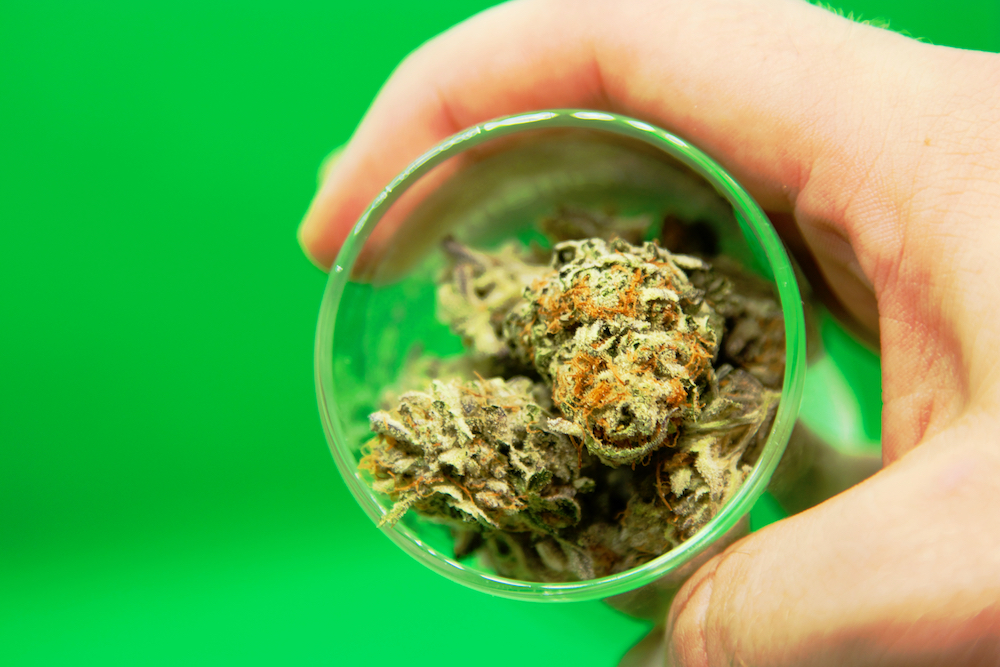Illinois’ first medical marijuana law was approved by former Gov. Pat Quinn in August 2013, when he signed the Compassionate Use of Medical Cannabis Pilot Program Act. The law legalized the cultivation, sales, and use of medical cannabis in the state.
Although medical marijuana passed into law back in 2013, patients that registered into the program only started buying cannabis a little while ago. Applications for growers, patients and sellers started late in 2014, and it took some time until dispensaries started operating.
Gov. Bruce Rauner signed a bill in July 2016 expanding the state’s medical marijuana program until 2020. Apparently, it seems that now the state’s program is developing more constantly, and more than 35,000 patients have already registered in the program.
As the 6th-most populous state of the US, it is expected that more medically-eligible patients are wanting to know how to get a medical marijuana card in Illinois. So, here in this article, you are going to see all you need to know about getting your card and how Veriheal can help you with that.
Who is an eligible patient for Illinois’ marijuana program?
A medically-eligible patient must be at least 18 years, an Illinois resident with a proof of residency, not hold a school bus permit or Commercial Driver’s License (CDL), not be an active duty law enforcement officer, correctional officer, correctional probation officer, or firefighter, and have been diagnosed with a debilitating medical condition listed in the state’s program.
What are the qualifying medical conditions in the Illinois program?
The qualifying medical conditions include 40 approved medical debilitating conditions such as cancer, HIV/AIDS, epilepsy, Parkinson’s, Multiple Sclerosis, Chron’s disease, Alzheimer and many others. You can the full list here.
What are the steps to get my medical marijuana card in Illinois?
The first step to obtaining your medical marijuana card is to have a consultation with a physician licensed in the state of Illinois. This licensed Illinois mmj doctor will evaluate your ailments and determine if marijuana is a viable treatment option for you.
If you’re approved by the physician as a qualified patient for Illinois medical marijuana program, he/she will attest your medical condition and submit a written certification for the use of medical cannabis. If you’re a veteran receiving medical care at a VA facility, you won’t need the certification.
Once your physician has filled out the Physician Written Certification Form, you must scan the form, save it as a .pdf document and upload it along with your online application or include the original document with your paper application. The certification must be received in 90 days of your application and must contain an in-person visit date in the last 90 days.
Why You Should Get Your Medical Marijuana Card
Veriheal has satisfied millions of patients nationwide by giving them access to these benefits
- Larger purchase limits
- Peace of mind
- Enhanced legal protection
- Access to higher potency strains
- Save up to 25% on cannabis purchases
- Skip the line at the dispensary
Now that you have the doctor’s certificate, you must either apply online or you can print out this application and send it to the state.
How can Veriheal help me getting my MMJ Card?
Veriheal has a team of qualified professionals that will guide you through the process of getting a medical marijuana card in Illinois. We will connect you to Illinois registered physicians that will recommend you medical marijuana.
First, you’ll need to register and schedule a consultation with one of Veriheal’s registered Illinois physicians. Then, you must attend your consultation and bring your medical records along with. During the consultation, the doctor will answer your questions about the treatment with cannabis and evaluate your medical condition and if you’re approved, he/she will fill out your Physician Written Certification Form. The consultation usually takes 10-15 minutes.
The fee for your medical evaluation, consultation, recommendation, and approval is of $199 for an individual package and $379 for a combo package (2 people). If you are not approved by the physician, you will receive a refund in FULL.
Are there additional fees?
Each patient can apply for one, two, or three years registry identification card. If you are receiving Social Security Disability Income (SSDI) or Supplemental Security Income (SSI), as well as veterans may be eligible for a reduced application fee. For more information about it, click here.
The fee is of $100 for one-year Registry Card, $200 for a two-year Registry Card and $250 for a three-year Registry Card. The reduced fees are of $50 for one-year Registry Card, $100 for a two-year Registry Card and $125 for a three-year Registry Card.
Once you’ve paid for your card, finished your application, you should hear from the state and get your card from 30 to 120 days.
I received my card. Where can I buy medical cannabis?
There are currently over 50 dispensaries in the state, and you can opt for the closest to you. To find dispensaries in Illinois, you can use our dispensary locator.
If you have any questions about the program, check with the Division of Medical Cannabis before submitting your application. Call 855-636-3688 or send an email to DPH.MedicalCannabis@Illinois.gov
Author, Share & Comments
















